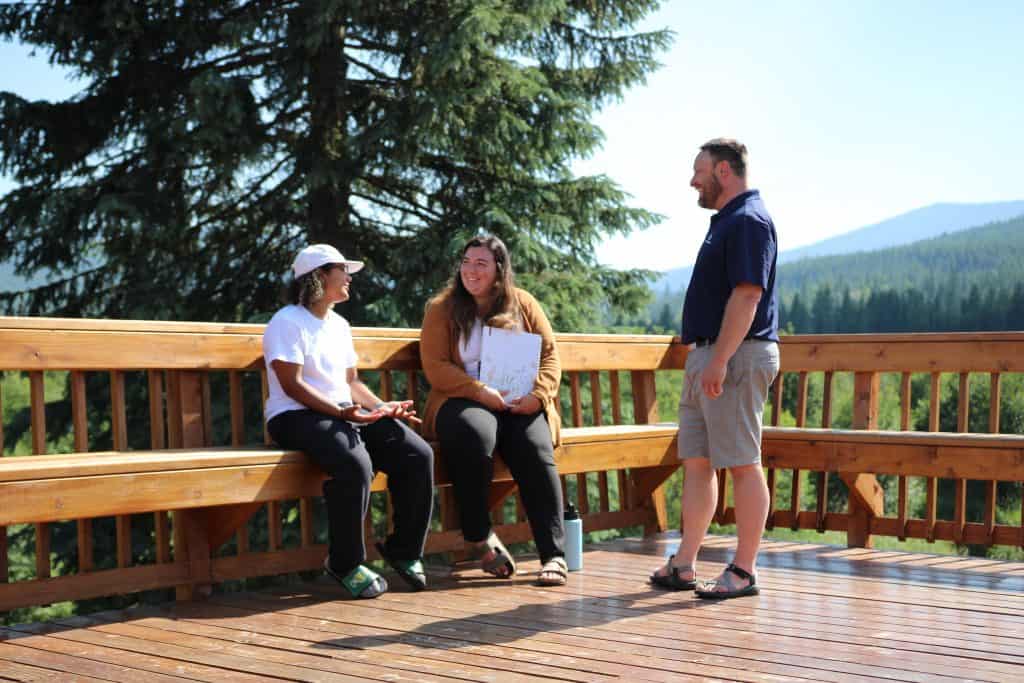
Turning Winds offers a full continuum of care consisting of a residential program, partial hospitalization program, and intensive outpatient program. This allows us to step treatment up or down based on need and increase independence over time as mental health and behaviors become more regulated. When a child returns home, routines are well practiced and relationships with family and the community can be re-established.
RESIDENTIAL PROGRAM
Residential treatment at Turning Winds consists of a series of diagnostic, clinical, and professional services. These include, but are not limited to, a comprehensive evaluation and assessment, individualized treatment planning and ongoing review, at least one individual therapy session per week, a series of group therapy and educational sessions weekly, and transition/discharge planning and supervision 24 hours per day, seven days per week.
This phase of treatment is the most intensive offered by Turning Winds and is used to provide the structure necessary to gain stability for the road ahead. Staff is trained in using Cognitive Behavioral Therapy (CBT), Dialectical Behavioral Therapy (DBT), and Motivational Interviewing as modalities performed here. Once the phase of residential treatment is completed, our clients then have a strong enough foundation in place to begin the process of functioning without the use of negative behaviors and self-soothing use of alcohol and drugs.
PARTIAL HOSPITALIZATION PROGRAM (PHP)
Partial hospitalization services are provided five days per week, with clinical groups beginning at 2:00 pm and ending at 8:30 pm Monday thru Friday. In addition, we also provide a comprehensive evaluation, individualized treatment planning and review, individual and family sessions, and transition/discharge planning.
This level of care provides structure and support while preparing the client to begin integration back into his or her community and daily life. The group meetings are treatment-focused, as well as didactic or processing in nature.
This phase is intensive to help the client learn to function without the use of negative behaviors, as well as the use of alcohol and drugs. The focus of the program is on creating a stable pattern of living through education, process groups, and individualized treatment planning. Partial Hospitalization provides structure and support while preparing the client to begin integration back into his or her community and daily life.
The partial hospitalization program is used as a step up from a less intensive level of care, or as a step down from a more intensive level of care, such as residential treatment. The group meetings are treatment-focused, as well as didactic or processing in nature.
INTENSIVE OUTPATIENT PROGRAM (IOP)
Intensive outpatient services help clients who are ready for a less demanding therapeutic schedule. IOP is generally done for 3–4 hours during daytime or evening hours, depending on the needs of the client and his/her family. Our outpatient services primarily serve as supportive, follow-up care that includes individual, family, and group therapy as part of the recovery plan.
Our intensive outpatient sessions are geared primarily toward helping clients develop relapse prevention skills, and to teach them useful coping skills through a series of therapeutic models. The level and length of care of our IOP program differs from client to client but is a powerful step in their transition from long-term treatment to the potential challenges of everyday life.
The focus of the program is on assisting the client and his/her family in maintaining the changes established during treatment, and continuing a stable pattern of living through continuing intervention and education.
Treatment is always administered by medical and mental healthcare professionals who are both licensed and experienced in the duties they are fulfilling. At Turning Winds, we have seen over time the powerful role that an intensive outpatient plan can do to help individuals return to a normal life. It is a critical piece to the process they are working so hard to get through.







